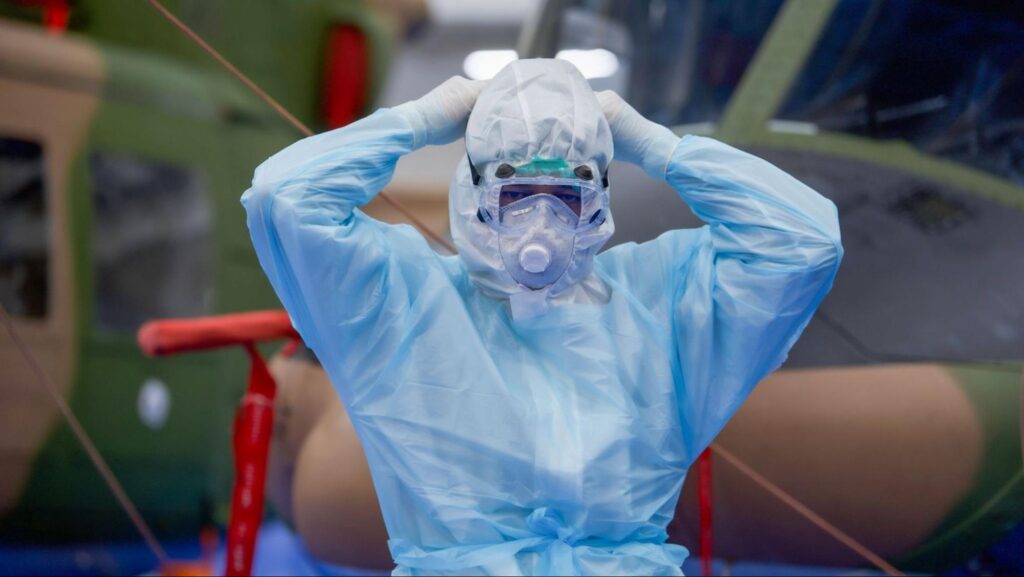The coronavirus (COVID-19) pandemic changed the global crisis model and forced society to embrace new ways of solving problems at an unprecedented scale. The game-changer among these treatments was artificial intelligence, which offered tools and technologies to mitigate the virus’s effects.
AI saved lives, speeded up critical processes, and generated valuable insights in areas ranging from health care to public policy to economic resilience. Even industries like online casino gaming, including the Bruce.Bet Сasino, made use of this innovation for improved player experiences, as well as security, during the pandemic. In this piece, we explore the extensive use of artificial intelligence in the outbreak and its impact after the epidemic has passed.
The AI-Driven Healthcare Revolution: Early Warning and Early Treatment
The innovation proved to be a useful companion for the medical community, as it enabled them to respond quickly to the challenge of COVID-19. Its tools process massive data sets to detect diseases early, diagnose more rapidly, and improve patient outcomes. Prediction models helped pinpoint possible outbreak sites using data from various sources, including headlines, social media, and medical records. Machines such as BlueDot spotted early signs of the pandemic, allowing countries to intervene.
Sense-making tools also supported diagnostic testing. Machine learning models were trained to analyze chest X-rays and CT scans to discover patterns that predicted the presence of COVID-19. This ensured precision and accelerated diagnosis, especially in crowded healthcare settings. AI-powered chatbots and virtual assistants have become the standard means for sharing information on public health. By empowering users with accurate information and symptom checkers, apps like Microsoft’s Healthcare Bot alleviated pressure on emergency hotlines and helped patients find the proper treatment.
AI for Vaccine Discovery: Boosting Development Speeds
The development of COVID-19 vaccines showed the promise of artificial intelligence in medicine. AI has slashed what might have been years of vaccine development time. Scientists used artificial intelligence to crunch the virus’s genetic code to find critical targets for making vaccines. Moderna and Pfizer used AI-based tools to develop mRNA vaccines in record time.

Also, by anticipating which candidate vaccines would be effective, models streamlined clinical trial design and saved time and resources.
Artificial intelligence contributed to the search for magic bullets. Machine learning algorithms parsed databases of drugs on the market to identify those that would work against COVID-19, creating the potential for drug reuse.
Improving Pandemic Management and Health Protection
Artificial intelligence was also integral to dealing with the broader public health challenges posed by COVID-19, particularly those surrounding compliance management, resource allocation, and contact traceability. AI-powered mobile apps have boosted the efficiency of contact tracing. Apps including:
- Aarogya Setu in India;
- TraceTogether in Singapore.
They employed Bluetooth to track users’ actions and notify them about potential exposures. This approach respects privacy concerns while reducing transmission rates.
The ability of this intelligence to monitor ventilator availability, hospital capacity, and PPE stock levels improved resource allocation. To avoid a crisis, governments and medical institutions deployed predictive analytics to channel resources where they were needed most. Artificial intelligence also helped enforce public health laws. Public spaces were wired with computer vision devices to track mask-wearing and social isolation. These tools provided real-time insights, ensuring compliance with health protocols and helping municipal authorities respond quickly.
Promotion of Social and Economic Resilience
Aside from therapy, this tech was necessary to maintain social and economic stability during the pandemic. This tech’s solutions ensured productivity and stability when businesses transitioned to remote environments.
Collaborative apps made remote work easier by including task management, schedulers, and automated transcribing tools. Similarly, students affected by school closures can have lessons with AI-augmented e-learning systems that keep them on track with their studies. Supply chains worldwide were also affected, although systems stabilized them by predicting delays and offering alternative paths to supplies. This helped prevent unnecessary delays in the delivery of critical goods to their destination.
Defying the Challenges in Applying AI Solutions
While artificial intelligence was tremendously beneficial, deploying it during the pandemic proved challenging. Privacy, especially for contact tracing apps, became a huge issue. The collection and use of personal data drew attention to data security and surveillance issues, highlighting the need for transparency.

Bias in models was another problem. Algorithms trained on incomplete or biased data have sometimes yielded unjust outcomes, such as inaccurate diagnoses or uneven resource use. This illustrates the importance of ensuring equality and diversity when creating AI.
Additionally, only some people worldwide have equal access to tools. The infrastructure required to roll out systems had to be more often required in low-income regions – compounding the existing crisis management and health system inequalities.
Building a Resilient Future Via Artificial Intelligence
The COVID-19 pandemic showed how powerful this innovation could be at resolving world crises. What we learn during this time shapes the use of this innovation to prepare for new challenges. Since smarter illness forecast algorithms can better identify emerging risks, it is possible to react quickly and effectively. The pandemic spurred international development cooperation that continues to grow and permits solutions to be dispensed for common problems.
This has been displaced by the pursuit of ethical AI, in which systems must be accountable, transparent, and fair. Such advancements will ensure that this tech remains a stable tool for emergency management.
AI’s Pandemic Response: A Blueprint for Future Crises
The use of AI in the coronavirus epidemic showed us how radical it could be. It has been an invaluable companion against COVID-19, stabilizing the economy, improving healthcare, and accelerating vaccine development.
While access inequalities and privacy problems remain, the advances have prepared the way for an era when AI will become central to resilience and global health. This tech concept is a beacon of innovation and promise, ready for what lies ahead as the world heals and prepares for the next challenge.
